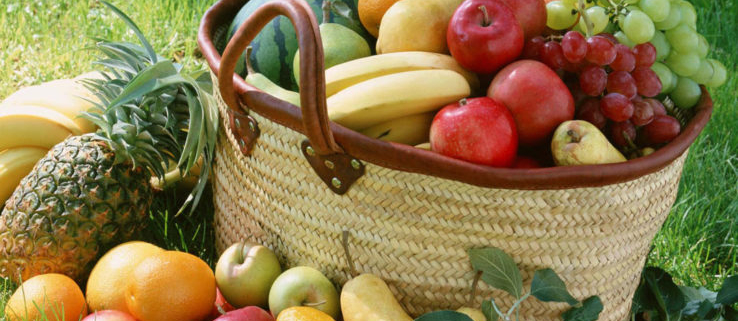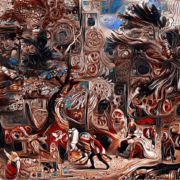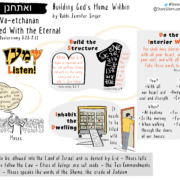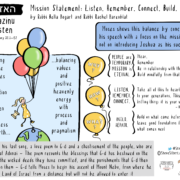Graceful Inheritance / Graceful Masculinity: Ki Tavo
Part of a periodic Torah series on graceful masculinity and Jewish values.
וְהָיָה, כִּי–תָבוֹא אֶל–הָאָרֶץ, אֲשֶׁר יְהוָה אֱלֹהֶיךָ, נֹתֵן לְךָ נַחֲלָה; וִירִשְׁתָּהּ, וְיָשַׁבְתָּ בָּהּ.
It will be when you enter the land that Hashem, your G-d, gives you as an inheritance, and you take possession, and dwell, in it.
Deuteronomy 26:1
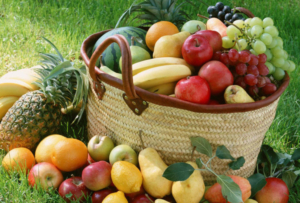 Like the Israelites in the wilderness, we have all inherited a broken world in deep need of urgent repair. Each day brings with it new tragedies to add to the ones that came before. Our daily struggle to advance progress and healing, feels like an embraceable holiness that is modeled by our ancestors and tradition. It is dispiriting to know though, that while today will end, the chaos and loss will naturally continue tomorrow. The Medresh presents a different view and categorizes this verse as a language of simcha. The people are promised a land that will be healed and restored, an experience uniquely suited to erase the pain of the past.
Like the Israelites in the wilderness, we have all inherited a broken world in deep need of urgent repair. Each day brings with it new tragedies to add to the ones that came before. Our daily struggle to advance progress and healing, feels like an embraceable holiness that is modeled by our ancestors and tradition. It is dispiriting to know though, that while today will end, the chaos and loss will naturally continue tomorrow. The Medresh presents a different view and categorizes this verse as a language of simcha. The people are promised a land that will be healed and restored, an experience uniquely suited to erase the pain of the past.
This verse introduces the commandment of bringing the first fruits to the Temple, a commandment which only applies in the land of Israel. Yet the word “וְהָיָה“ (it will be), implying joy, doesn’t introduce the subsequent two words, “כִּי–תָבוֹא” – (when you enter), where they appear in Leviticus 19:23 or in Numbers 15:2. It seems this happiness, and obligation to bring the first fruits, strangely are only achieved once the land is settled, but not simply by entering it. Additionally, why does the verse seem to make a distinction between Nachla and Yerusha, ostensibly synonyms for inheritance?
The Ben Ish Chai offers an insight that provides a broader outlook for the framing of this verse. He observes that when King David describes the Land of Israel he speaks of it in the plural: בְּ֝אַרְצ֗וֹת הַחַיִּֽים׃ in the lands of the living. Quoting the mystical tradition, the letter “ת”, spelled “תו”, alludes to Torah, תו–רה – that was received on הר -Mount Sinai.
We know the Torah has its geographical source in Israel, as the verse testifies “For the Torah shall come forth from Zion” and this is the Lands of Israel that King David is referencing; ארצות – a Torah centric Israel. The Ben Ish Chai continues that the plurality of the lands, and the living – חיים – is created by the different layers and levels of the Torah, particularly the Pardes. King Solomon writes: כִּ֤י לֶ֣קַח ט֭וֹב נָתַ֣תִּי לָכֶ֑ם תּֽ֝וֹרָתִ֗י אַֽל־תַּעֲזֹֽבוּ – for I give you good instruction…and the good – טוב – having a numerical value of 17, multiplied by the four categories of the Pardes, equals the 68 of חיים, the living.
This is further alluded to in the word “תבוא” – when the Torah comes – תו בא, the land will be for you. Only when the land is settled in a way that supports the Torah’s teachings will we be worthy of receiving the land that was promised to our ancestors. This is the inheritance that awaits us as a נחלה. It is the grace that is produced by the learning of Torah – חן לה that makes it a pleasant and peaceful gift from G-d. In the Midrash we find that the priestly blessing “ויחונך” is understood as connected to חינוך, education. The blessing means יחנך בתלמוד תורה to be blessed with grace through the study of Torah.
The word “תבוא” can also be arranged to form the word for ancestors, אבות. Rav Nosson Gestetner articulates the distinguishing feature of a Yerusha as being that which is inherited, as opposed to gifted. Gifts are discretionary, whereas an inheritance devolves regardless of merit. Like the Torah says about itself תּוֹרָ֥ה צִוָּה־לָ֖נוּ מֹשֶׁ֑ה מוֹרָשָׁ֖ה קְהִלַּ֥ת יַעֲקֹֽב – the heritage of the congregation of Jacob.
The settling referenced here is a mindset that contributes to our ability to be happy. Ramchal equates our capacity to recognize the temporary nature of being settled in this world, and the permanence of our spiritual existence, to living a happier life free from the worries that distract from our true inheritance – נחלה נחלת עולמים.
Simcha (joy) has the same root as somach, to be supported. When a person feels that G-d is taking care of them, how could they not be overwhelmed with happiness? The Rebbe Reb Zusha parses the morning blessing thanking G-d for “who provides me with all of my needs” – שֶׁעָשָׂה לִי כָּל־צָרְכִּי – as “everything that was provided for me, I need”. Knowing that G-d loves us and understanding that it is that love which motives all of the commandments causes us to be in relationship with G-d through joy. It is perhaps for that reason that we are warned later in the parsha of the negative consequences of not operating out of simcha, because it is an indicator of one’s lack of faith.
Bringing the first fruit offering requires the accompanying intention, and sensation, of gratitude for everything that has happened in the past until the present, including explicit mentioning of the oppression and hardships. Only when we are able to appreciate the Divine source of the land, and the expectations of dwelling in it, will we be able to fulfill the words of King David redemption of Zion הַזֹּרְעִ֥ים בְּדִמְעָ֗ה בְּרִנָּ֥ה יִקְצֹֽרוּ – those who sow in tears shall reap with songs of joy.

R. Mike Moskowitz is a founding builder at Bayit and scholar-in-residence at CBST.

